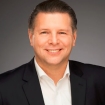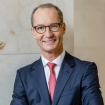

“Our notion of ‘thinking in generations’ and a family-like atmosphere of appreciation are very tangible at Miele."
“You can only interpret the values of the family – the values of the business – by living them personally and by making everybody in the business aware of them, by making the ‘genetic code’ of these values comprehensible to all."
Dr. Reinhard Zinkann recalls an occasion a couple of years ago when he was asked why his company, Miele, was not interested in receiving a credit line – a common type of bank funding for companies. He explained to the person he was talking with that Miele simply doesn’t use credit lines.
Miele is known globally for its premium domestic appliances, such as washing machines, ovens, dishwashers, and vacuum cleaners. In its 119-year history, the company has only ever used its own funds, eschewing bank loans, stock exchange funding or other forms of external capital.
“Keeping the company free from the often short-term interests of the capital market has helped us overcome economic crises, changes of government and periods of high inflation,” says Zinkann, one of Miele’s five executive directors.
This helps the company take a long-term view of business, especially at a time when pressure on publicly-listed companies to deliver on a quarterly basis has arguably never been greater. “Finally,” says Zinkann, “ it helps us to strengthen our position as an independent, family-driven enterprise as well, which is our overriding strategic goal.”
The way in which Miele finances itself is a rarity in business, and so is its ownership structure – even relative to other family businesses. Co-founded by Zinkann’s great-grandfather – also called Reinhard Zinkann – and his business partner, Carl Miele, in 1899, the company is owned almost equally by two families: the Mieles (51%) and the Zinkanns (49%). Markus Miele – like the present-day Reinhard Zinkann, one of the great-grandsons of the cofounders – represents the Miele family within the company. Only direct descendants of the co-founders are granted shareholder status. The families have never intermarried and stay equally committed to the business and its ownership structure.
When it comes to manufacturing and the customer, Miele has always been guided by its promise of ‘Forever Better.’ The phrase was devised by the two founders and has guided Miele and its employees ever since, according to Zinkann. This notion forms the basis for the company’s aspiration to be the quality and innovation leader in the industry, as well as for its focus on maintaining the Miele brand’s position in the premium segment. These core values remain unchanged but are interpreted in line with the times. ‘Forever better’ doesn’t just refer to the idea of having a quality product that helps people handle laborious household chores with ease, but also endeavours to inspire people and enrich their lives.
Miele’s values help with its recruitment efforts, too, says Zinkann: “We offer secure and well-paid jobs in a highly respected company, which combines the values and appreciative culture of a family-run business with the job and career perspectives of a successful global player. This distinguishes Miele from many other employers and makes Miele attractive to potential employees.”
“Our notion of ‘thinking in generations’ and a family-like atmosphere of appreciation are very tangible at Miele. Like the two proprietor families, we have some employees who also represent the third or fourth generation of their families.”
Every new manager is taken through an induction programme, which involves visiting company headquarters in the German town of Gütersloh, as well as visiting sales offices elsewhere, to give them a sense of the way values are brought to life on a daily basis throughout the company. As part of this programme, new colleagues get to know the executive directors and co-proprietors, who make a point of being accessible and approachable in the course of daily work.
“An old calendar motto still hangs on the wall in Carl Miele’s former office, which says, ‘Freude ernährt; Unfriede verzehrt,’ which can be interpreted as ‘In peace, we flourish; in discord, we wilt.’ Together with a sense of mutual respect, this notion possibly made it easier for our two-family business to avoid existential conflicts among partners than what you can find at a one-family company, where several family groupings may have to coexist,” Zinkann says. This spirit of cooperation between both families created a strong legacy at Miele that remains in place today.
That spirit has forged deep roots in the company’s governance structure. Miele has a ‘family council,’ made up of three representatives from each family, which was put in place to make sure that one family cannot out-vote the other in company meetings. This structure filters down through senior management. The operational management team is made up of five executive directors who works on an equal footing and who arrive at decisions unanimously.
Says Zinkann: “You can only interpret the values of the family – the values of the business – by living them personally and by making everybody in the business aware of them, by making the ‘genetic code’ of these values comprehensible to all. In the end it all boils down to defining why you are in business.”
Contact us

Global Family Business Leader and EMEA Entrepreneurial & Private Business Leader, Partner, PwC Germany

Dr. Peter Bartels
Partner, Global Entrepreneurial & Private Business Leader, PwC Germany
Tel: +49 40 6378-2170


















